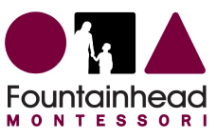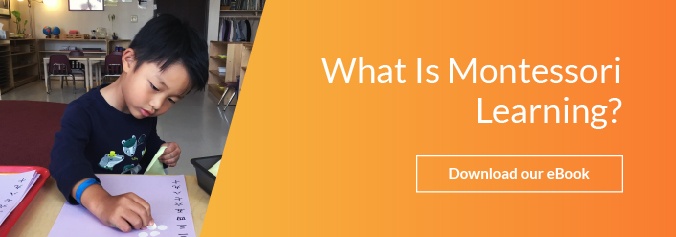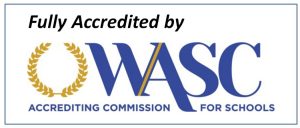Montessori education programs are built upon the philosophy outlined by Maria Montessori over a century ago. Montessori programs that closely follow the Montessori Method are built around a few core tenets. These tenets inform the design of the classroom, the curriculum, and even the way teachers and students interact. The core philosophy of a Montessori education program is that children are naturally smart and curious. Based off of that belief, the other essential elements of a Montessori education include the beliefs that each child should have individualized instruction, learning can happen independently, and that the purpose of education is to prepare students for success in life.
Children are naturally smart and curious
At the core of the Montessori philosophy is the belief that children are naturally smart and curious. This is an important factor to understand about Montessori education because the other tenets of this type of program are built upon this belief. Maria Montessori worked with students that did not thrive in the traditional classroom and were considered ‘unteachable’. She knew that traditional methods did not work with those children but had a core belief that they were capable of learning. Through her time with those students, Montessori observed that learning was possible. In fact, she observed that the students were naturally smart and curious. When provided with topics of interest and the freedom to explore, the students started learning and thriving in the classroom. In a Montessori education program, each student is believed to possess a natural curiosity and ability to learn. The classroom and curriculum are designed with that belief in mind.
Each child should have individualized instruction
In Montessori education, one of the core tenets is that each child should have individualized instruction. This belief goes back to the core philosophy that children are naturally smart and can learn by following their curiosities. The teacher in the Montessori classroom learns about each student’s interests and develops a learning plan that includes learning opportunities aligned with those interests. This type of individualized instruction helps keep students engaged and provides them with opportunities to explore.
Learning can happen independently
Another important element of Montessori education is the belief that learning can happen independently. Students in the Montessori classroom are not micromanaged by the teacher or assistant. Instead, they are provided with a variety of hands-on learning activities and the space to engage independently in those activities. There is time for focused, independent learning built into each school day in the Montessori classroom. This design helps to foster personal responsibility when it comes to learning which can, in turn, help students develop into life-long learners.
In the Montessori Philosophy of education, the purpose of school is to prepare students for success in life. The core beliefs and tenets of Montessori education all work toward that goal. You can learn even more about the Montessori Philosophy by exploring the resources in the online parent library of Fountainhead Montessori School.












Let Us Know What You Think About This Post
Put your Comment Below: